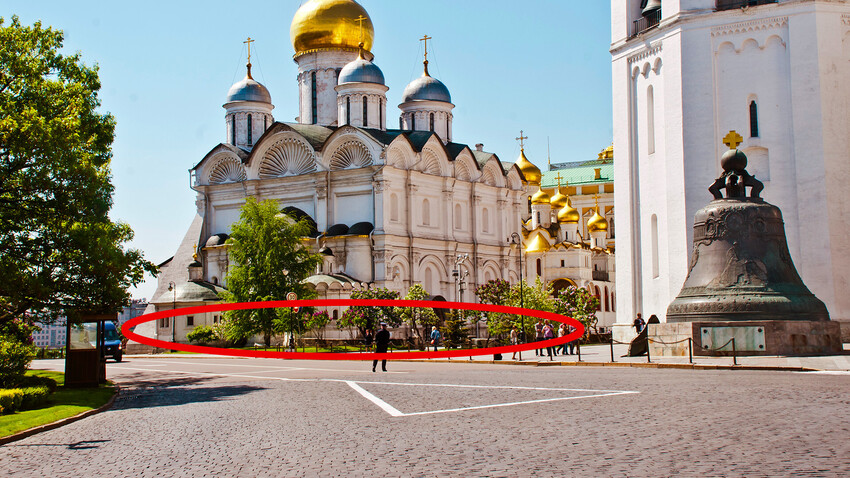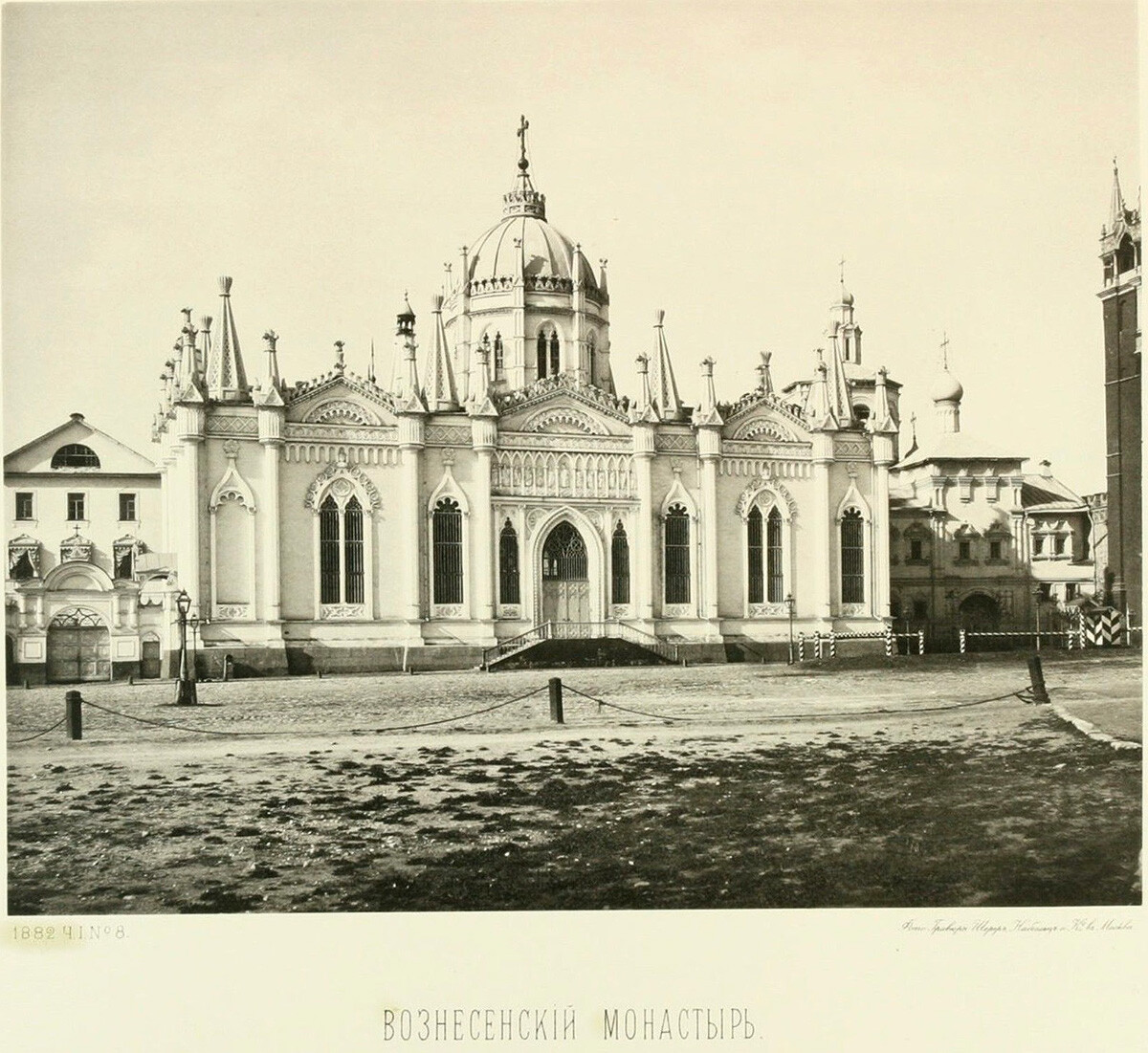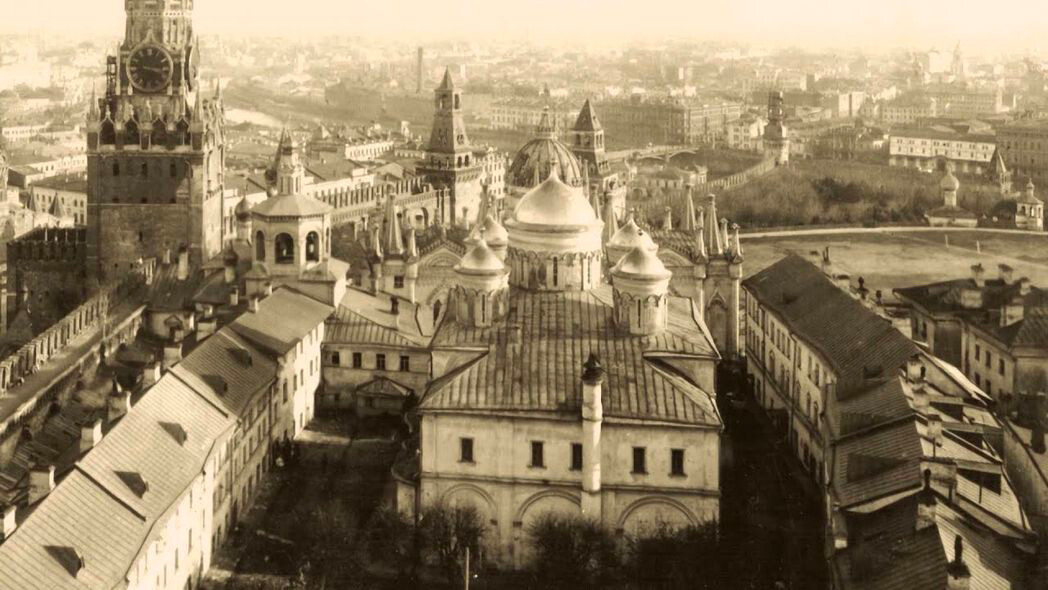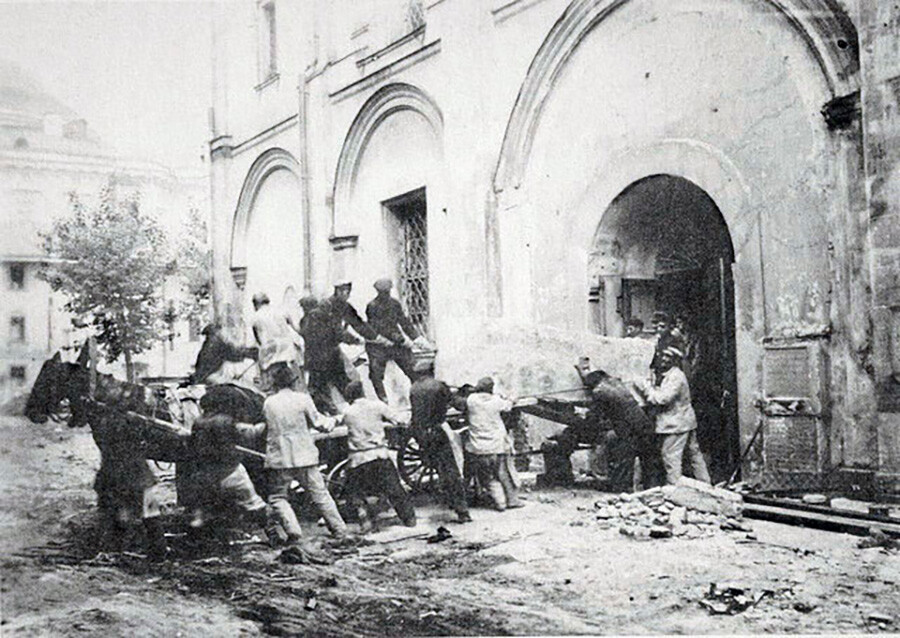

Until 1929, it was located in the Kremlin Ascension Monastery. The abode, founded in 1386 by Dmitry Donskoy's wife Evdokia Dmitrievna, stood near the Spassky Gate and was dedicated to the ‘Battle of Kulikovo’. In it, widowed rulers lived out their lives and princely and royal brides awaited their weddings. For example, Marina Mnishek lived there before her marriage to False Dmitry I.

For 300 years, the wives, daughters and mothers of Russian rulers found rest in the monastery. Among those buried are Sophia Vitovtovna, the wife of Grand Duke Vasily I, Sophia Paleolog, the wife of Ivan III, Elena Glinskaya, the mother of Ivan the Terrible, and his wives - Anastasia Romanovna, Maria Temryukovna, Marfa Sobakina and Maria Nagaya, Irina Godunova, the chosen one of Tsar Feodor Ioannovich and Natalia Kirillovna Naryshkina, the mother of Peter I. The last burial in the Voznesensky Monastery was made in 1731 - it belongs to Praskovya Ivanovna, the daughter of Ivan V and Peter the Great's niece. In total, there were more than 60 burials in the monastery.

In 1917, artillery shells damaged the domes and walls of the monastery churches and its inhabitants were soon expelled. And, in 1929, the monastery was blown up. The young Soviet government was clearing a place for a new Military School, getting rid of “remnants of the past”. The sarcophagi of the Russian rulers, however, were miraculously saved - they were moved to the Archangel Cathedral, where they remain to this day.
Dear readers,
Our website and social media accounts are under threat of being restricted or banned, due to the current circumstances. So, to keep up with our latest content, simply do the following:
If using any of Russia Beyond's content, partly or in full, always provide an active hyperlink to the original material.
Subscribe
to our newsletter!
Get the week's best stories straight to your inbox